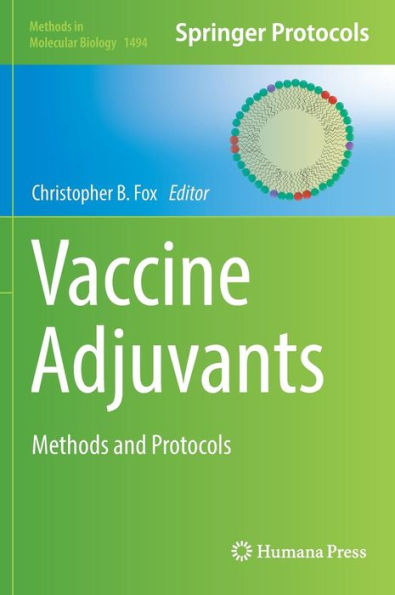5
1
9781493964437



Vaccine Adjuvants: Methods and Protocols available in Hardcover, Paperback

Vaccine Adjuvants: Methods and Protocols
- ISBN-10:
- 1493964437
- ISBN-13:
- 9781493964437
- Pub. Date:
- 10/08/2016
- Publisher:
- Springer New York
- ISBN-10:
- 1493964437
- ISBN-13:
- 9781493964437
- Pub. Date:
- 10/08/2016
- Publisher:
- Springer New York

Vaccine Adjuvants: Methods and Protocols
$179.99
179.99
In Stock

Product Details
| ISBN-13: | 9781493964437 |
|---|---|
| Publisher: | Springer New York |
| Publication date: | 10/08/2016 |
| Series: | Methods in Molecular Biology , #1494 |
| Edition description: | 1st ed. 2017 |
| Pages: | 372 |
| Product dimensions: | 7.01(w) x 10.00(h) x (d) |
From the B&N Reads Blog
